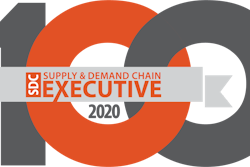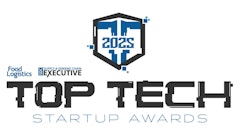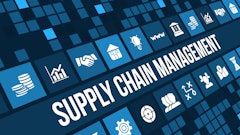
Congratulations! You’ve built a successful brand from the ground up. Consumers are eager to buy your products. Demand only grows with each day. This is what every entrepreneur aspires to achieve, but with an influx of business also comes new challenges, particularly when it comes to the supply chain.
When you were just starting out, you might have had a small team processing orders, working with suppliers and managing supply with demand—and this might have been fine at the time. As your business grows, it can become overwhelming to use the same processes and entry-level tools.
Supply chain managers and teams end up spending more time trying to keep up as orders pour in. Little time or resources are left for any level of strategic thinking, inhibiting continued growth.
For companies “on the grow,” it’s a good time to evaluate if your supply chain infrastructure is ready to meet the demands of tomorrow. Consider the following to ensure your supply chain can scale alongside your business:
1. Invest in supply chain–wide transparency
Young companies can seemingly get by using basic enterprise resource planning (ERP) systems and managing operations in spreadsheets. But then new partners and additional channels, such as ecommerce and social media, come into the picture. Data silos quickly emerge, making it hard to manage critical aspects of the supply chain like channel allocation, demand forecasting and replenishment.
Today, there are innovative technologies that can connect disparate supply chains—namely, distributed ledger technology, a.k.a. the widely discussed blockchain. Blockchain provides a decentralized digital ledger of all product movements and transactions. These records flow in real time upstream and downstream in the supply chain, which supports greater transparency and decision-making.
The best part is blockchain implementation is neither as expensive nor as complicated as you might think. While news stories about use cases focus primarily on large companies like Walmart, Blockchain-as-a-Service (BaaS) platforms are available that democratize the technology for all.
BaaS platforms enable companies of all sizes to connect their supply chains with end-to-end visibility from any device with an internet browser. For instance, using a BaaS solution, independent frozen food brand Ruby Rockets was able to integrate its accounting system, purchase orders, inventory management system and online shop on blockchain in under 90 days. Rapid deployment means you can start utilizing blockchain sooner rather than later—and begin to see its benefits. Through an affordable monthly subscription model, BaaS keeps costs low for burgeoning businesses conscious of where they are dedicating investments.
2. Look for scalability in the long run
With new business comes new supply chain complexities. It becomes no longer feasible to manage the many parts of the supply chain in isolation—not if you want to meet consumer demand and drive future growth. You instead need to think holistically about your supply chain. And that requires an enterprise-scale solution like blockchain. As you look at solutions, you need to make sure they are future-proof, meaning they will meet not only your immediate needs, but also those in the long run. BaaS platforms are good in this respect.
Since all you need is an internet browser, there is greater scalability. You can quickly add new nodes as your supply chain expands. New suppliers, production sites, distribution centers, transportation providers, and sales channels can all be brought onto the distributed ledger with ease, enabling you to immediately begin incorporating them into your planning, supply chain operations and business decisions.
3. Find strength in your data
As mentioned earlier, when you’re busy just trying to keep up with demand, it’s hard to think strategically about what you’re doing. You just want to get products made, out the door and in front of customers. You might not have time to review key performance indicators (KPIs). Or, you might only have limited KPIs, giving you a very narrow view of what’s happening in the supply chain. But, if you can tap into real-time data using blockchain, you can extract actionable insights to foster growth by proactively meeting demand. In effect, you create a customer-centric, demand-driven supply chain.
Namely, blockchain platforms offer a holistic, digital view of what’s happening at every and any point. You can instantly access data on which products consumers are buying and in which regions. You can thereby become more proactive and make smart decisions in relation to channel allocation, demand forecasting and replenishment. Instead of being in constant catch-up mode and reacting to market data, you can stay one step ahead of the curve. This gives you breathing room to look for other improvement opportunities throughout the supply chain.
Scalability ultimately comes down to one thing: continuous improvement. You want to be able to shift your operations and business in a positive way based on real-time demand, market changes, and the evolution of your company. Blockchain—and BaaS specifically—provides the intelligence, visibility and adaptability needed for you to continuously grow and scale to new heights.


















![Pros To Know 2026 [color]](https://img.sdcexec.com/mindful/acbm/workspaces/default/uploads/2025/08/prostoknow-2026-color.mduFvhpgMk.png?ar=16%3A9&auto=format%2Ccompress&bg=fff&fill-color=fff&fit=fill&h=135&q=70&w=240)
